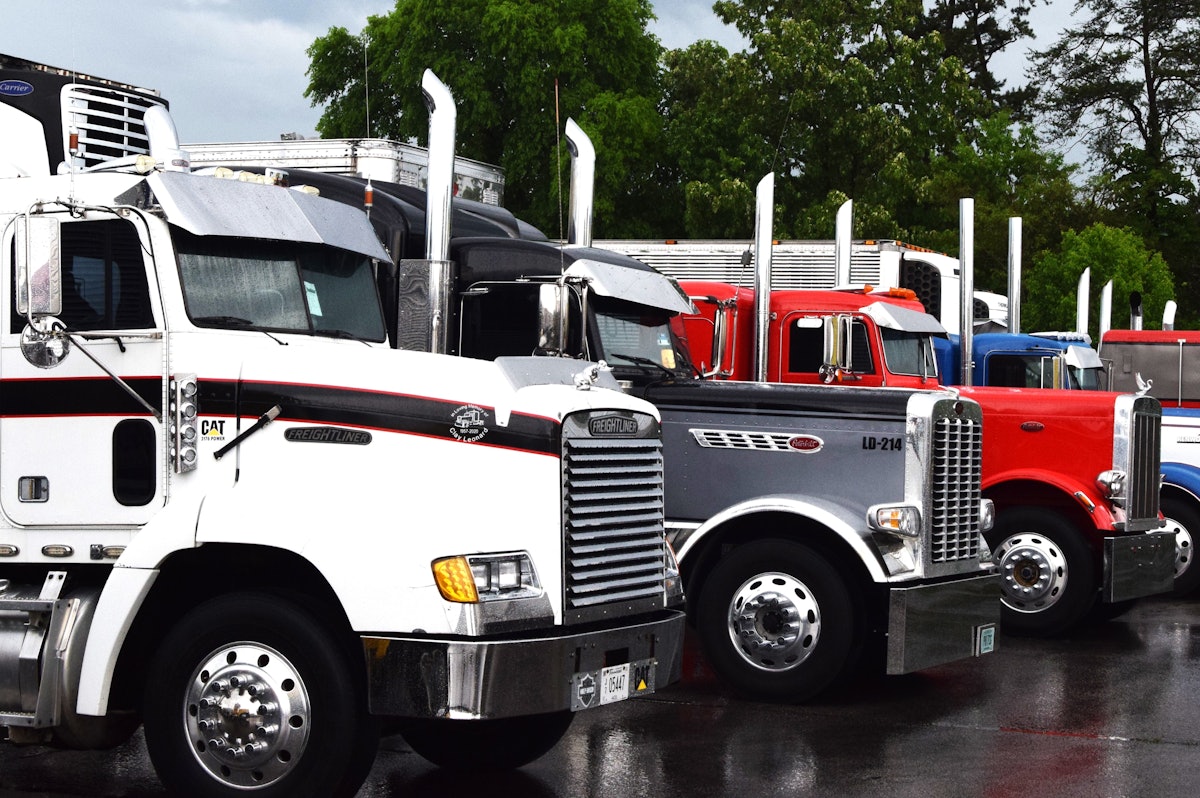
The last meeting of the Federal Motor Carrier Safety Administration’s Truck Leasing Task Force, held June 13, opened with something of a reckoning for committee members after public sessions held at the Mid-America Trucking Show in March.
There, task force members heard from truck operators with direct experience in truck lease-purchase arrangements with motor carriers and/or affiliate leasing companies, among others. The direct testimony came alongside an information collection request for real-world truck lease contracts that reps from the Consumer Financial Protection Bureau continue to analyze for findings about equitable contract terms — and the opposite, terms that unduly tilt risk and expense to the operator, to the benefit of the carrier.
CFPB reps Ryan Kelley and Emma Oppenheim plan to present findings of a contract-terms analysis at the next task force meeting, July 18, yet underscored a need for more examples from around trucking to help the analysis. Truckers in and motor carriers with lease-purchase programs were encouraged to send in example contracts and supporting financial documents to [email protected].
Otherwise, the July 18 meeting sets task force members to take up a discussion of the “opportunity that equitable leasing agreements provide for drivers to start or expand trucking companies,” likewise touching on “the history of motor carriers starting from single owner operators.”
Examples from carriers who feel their approach to lease-purchase sets operators up for eventual truck ownership, effective profit during the lease term, and future success, in particular, could be instrumental at this stage of the task force’s work — members are driving toward a final set of recommendations later this year. Judging by how the June meeting started, if equitable programs and contracts exist it’s fairly clear that task force members haven’t seen them.
As he has noted in past meetings, attorney Paul Cullen Jr. reiterated he wanted to “keep on the agenda … one possible recommendation we have,” he said. Namely, “that these programs should not exist,” full stop. At once, Cullen acknowledged testimony from task force member and owner-operator Tamara Brock, whose story of success starting out as a contractor in a lease-purchase with a motor carrier herself early on in the task force’s existence swayed some members toward the potential value of lease-purchase programs.
“We’ve heard, including Tamara’s experience,” said Cullen, “that these relationships can work. If those do exist, it would be interesting to get” documentation of equitable arrangements. “If those arrangements do exist, we need to know why. Otherwise, the evidence is overwhelming against these arrangements to continue to exist.”
Was underwriting built into the decision to bring an operator into a lease-purchase? CFPB’s Ryan Kelley asked, offering an example of the kind of practices, namely risk-based pricing as in any traditional loan, that could be relevant. “Or was it a no-credit-check kind of situation?” he added.
Settlement sheets, too, Cullen said, and “any final accounting of the relationship … [that] usually occurs at the end of the relationship.”
[Related: Lease-purchase task force zeroes in on restrictive maintenance covenants]
Task force member and University of Pennsylvania sociologist Steve Viscelli, long critical of inequitable carrier lease-purchase arrangements, recommended a “formal ask to companies that we know that engage in these kind of [lease-purchase] relationships.” The task force might be advised, he added, to “ask them to come and talk to us about them” and “bring their data as to the success rates of those programs … so that we don’t miss those positive avenues.”
Yet after the MATS public session, even owner-operator Tamara Brock noted her mind had been changed as to “saving the lease-purchase” for prospective owner-operators who “don’t have good money down or great credit,” she said. “Over the months we’ve been meeting, and especially at the truck show in Louisville, it really changed my mind completely. The contracts I’ve been collecting and videos of stories from the lease-purchase drivers” she’s been sent by operators in her network — all point her to a conclusion that lease-purchase with a motor carrier is “just really set up for your failure.
“It really changed my perspective from when I came into the committee.”
Committee Chairman Steve Rush, retired founder of fleet Carbon Express, had his own mind changed early in his tenure with the committee by Tamara Brock’s story of early success through carrier lease-purchase. But in the June 13 meeting he noted he fundamentally now was back to the point of feeling the “lease-purchase model needs to be outlawed,” he said. “The evil that comes out of it far surpasses the good.”
The next public meeting, as noted, is set for July 18. Find details and register by July 12 at this link to participate.
[Related: How mostly owner-operator fleet K&J Trucking became the ‘Best Fleet to Drive For’]